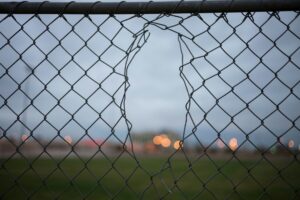US history is full of migrants whose success stories have shaped the nation’s cultural and economic development. For example, Sergey Brin came to the US as a refugee 1979 and went on to co-found Google, one of the US’s most powerful companies. My own grandparents immigrated to California from Japan in the 1920s, where they set up a small grocery store to help feed their community. Their lived experiences as immigrants – and my own as a second-generation American – are part of what drives my efforts for Kusala Institute.
For many Americans, the economic benefits of migration are not immediately apparent – some view refugees and immigrants as a financial burden on the US economy. But reports suggest otherwise. A 2017 draft of a report by the US Department of Health and Human Services revealed that economic benefits from refugees surpassed costs by $63 billion between 2005-2014. A 2021 policy brief by the United States Immigration Policy Center concluded that “refugee resettlement does not negatively impact the U.S. economy.” Positive economic impact requires language proficiency – something that is difficult for refugees and migrants to achieve without support and access to language learning resources.
Even as improved access to language learning resources promotes migrants’ capacity to contribute to their communities’ economic development, lack of access poses significant risks to their wellbeing.
For example, research shows that the lack of English language proficiency and health literacy results in worse health outcomes for refugees. Refugees and immigrants who lack the language competency to communicate their needs to healthcare providers are often unable to access adequate – and sometimes life-saving – medical care. Even with language learning resources that provide a basic language foundation, “the refugee community continues to struggle with high rates of mortality and morbidity, trauma-induced stress, poor access to basic health care, and poor health status.” Without language proficiency, refugees and migrants risk not being able to access preventive care or understand a doctor’s diagnosis, which can make them more vulnerable to acute and chronic conditions. They also often receive lower-quality care. Despite laws that require healthcare practitioners to provide interpretation services, nearly 50 percent of hospitals fail to do so.
Language proficiency, or lack thereof, also impacts access to education, and consequently employment opportunities. Children with refugee or immigrant parents who do not speak the host country language often find it much more difficult to keep up with school, because they are unable to turn to their parents for help. As a result, those students are often subject to discrimination, isolation, bullying, and cultural maladjustment – which has further consequences on their mental and physical health.
Despite language acquisition being one of the most important factors for wellbeing, refugees and migrants face obstacles from every direction. Language learning is rarely a priority for decision-makers, who fail to ensure access to adequate language learning resources. Refugees’ and migrants’ precarious living conditions and lack of mobility act as further barriers. Women and girls coming from patriarchal, insular communities are often particularly affected. Kusala Institute has partnered with the Latudio language app to help refugees and migrants overcome these challenges. No-one should be deprived of medical care or an education just because they speak a different language. Everyone deserves the opportunity to live up to their full potential, and there is no one solution that meets every need. Kusala Institute is focused on supporting refugees and migrants through personalized, holistic learning experiences that cultivate the language skills they need to survive and thrive.
For refugees and migrants, the journey of integration is filled with challenges. We invite you to join us in a mission so they can fully participate and contribute to their new communities. You can give hope to more than just one individual by donating or virtually volunteering on an initiative. For those seeking greater impact or looking into partnerships for lasting change, please connect with Juan Ghersnich Eckers. Together, we can empower the resilience and integration of refugees and migrants.







